Football diaries: Visiting world football patrimony 01
I've decided on blogging on an interesting topic that combines football, travel, & history.
Being my first entry of the series I wanted to give a brief introduction on what type of work I'll be posting.
Within the series expect everything football related. I will give in depth info on either club teams, national teams, general "folkloric" or cultural articles on a teams fan base or influence (i.e neighborhood, city, ultras/hooligans, political stance or other influences) and also articles in regards to infrastructure, museums and stadiums.
Generally I'll cover teams in the southern cone given I can actually visit them seeing I live in South America, but as I travel I will also cover other local teams and hopefully national teams as well.
Enjoy!
Estadio Centenario - Montevideo, Uruguay
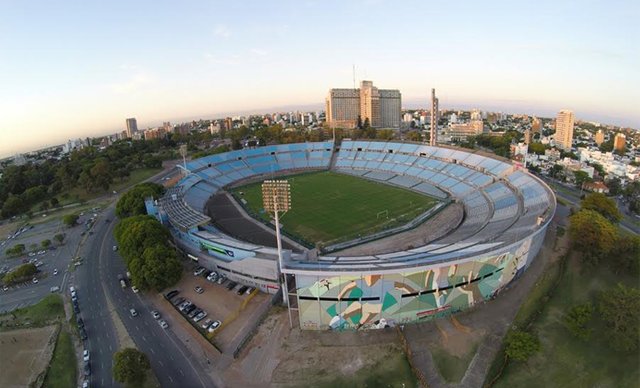
Have you ever wondered how it would feel to go back in time?
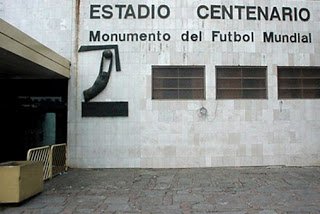
 Well, with just visiting the Centenario Stadium Museum you can experience that sensation first hand. A spectacular and very complete museum for any football or sports fan. Not only will you find "charrua" football history, but also a very nice touch of South American football history, along with other national teams from around the world.
Well, with just visiting the Centenario Stadium Museum you can experience that sensation first hand. A spectacular and very complete museum for any football or sports fan. Not only will you find "charrua" football history, but also a very nice touch of South American football history, along with other national teams from around the world.
 Uruguay was host to the first ever FIFA World Cup in 1930.
Uruguay was host to the first ever FIFA World Cup in 1930.
The stadium itself, located in Montevideo, was prepared specifically to host the event. A massive infrastructure for the time & built in a record 9 months primarily by European immigrants . Its current capacity maxes out at 62,235 spectators making it the biggest in Uruguay and within the top 15 biggest in America. In 1983 FIFA deemed the stadium a historical monument for world football, making it the first and only stadium to date with this distinction.
Given I'm a football nerd, as I stepped in and got my first glimpse I felt my age was suddenly split in half, as if some voodoo magic overcome me. I was a kid again. 12 years old going from here to there, looking at everything, and wanting to touch everything, obviously. Upon entering the museum you're left facing a giant panoramic aerial view of El Centenario which I found to be pretty impressive. From there you can head to the room on the right or go around and enter a different area with images and a short story told of "la celeste".
Ultimately to me, the best part of the museum was on the above floor.
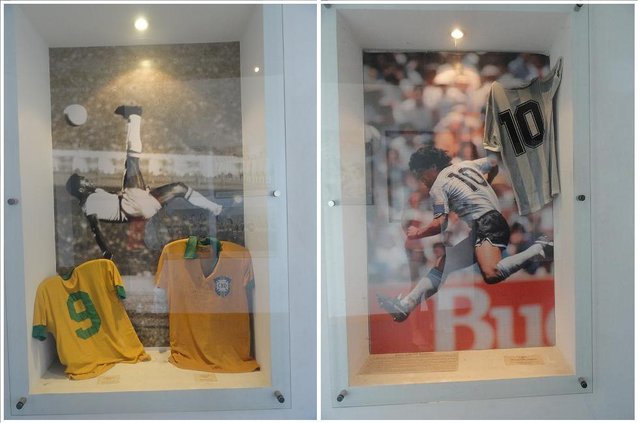
I am not talking about the tremendous match worn jerseys by soccer geniuses like the greatest of all time Diego Armando, nor the one of Pele. Neither am I referring to the replica Jules Rimet Trophy, the original World Cup trophy used between 1930-1970, with the emblematic image of the Greek goddess Nike (which in translation means Victory).
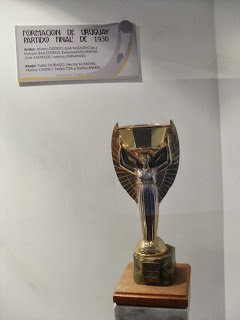
The wide variety of original national team kits that participated in the first World Cup or other memorabilia really didn't hit that aforementioned home run either.
Neither did the surprisingly heavy and sturdy looking boots and rustic balls of that moment.
What really came down to the best part, was the actual time machine they maintained at a remote end of the museum. You get a typical feel of the era when you see old jerseys, trophies , boots and balls of that time on a display, but it does not amount to seeing the press room of the first world cup live & maintained in prestige condition. Walking around it, seeing it set up exactly as it was over 85 years ago and being able to sit there to get the actual feel was truly impressive. Truly an excellent experience!
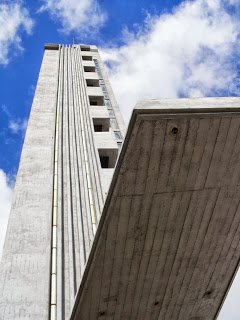
A museum that offers everything, both new and old. A tremendous tour, a journey from the past to the present that culminates up a few stairs to reach the peak of El Centenario and from there being able to climb to the highest point of the tower to get a unique view of the surroundings.
I wouldn't recommend passing up on the opportunity to visit if your ever in Montevideo.

https://steemit.com/@zeeshan23